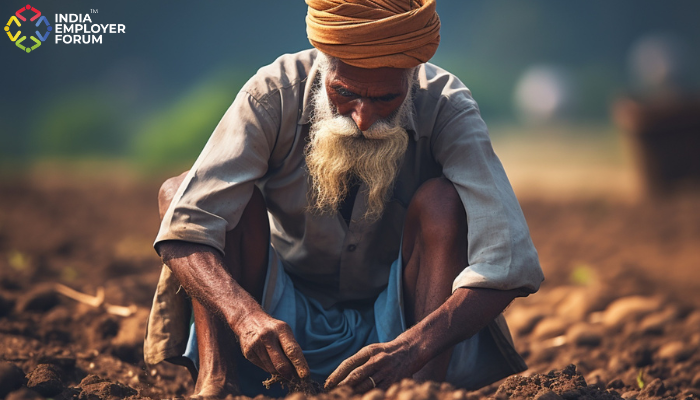India, with its vast and diverse agrarian landscape, has the potential to not only feed its burgeoning population but also significantly contribute to global food security. It is imperative to explore how India can leverage its agricultural prowess not just for sustenance but as a catalyst for economic growth, boosting food security, and enhancing per capita income.
Enhancing Food Security: A Multi-Faceted Approach
1. Sustainable Agriculture Practices
Implementing sustainable farming practices is paramount for long-term food security. Techniques such as precision farming, organic cultivation, and water conservation not only ensure robust crop yields but also preserve the health of the soil for future generations.
2. Technology Integration
Leveraging modern technology, including precision agriculture tools, drones, and data analytics, can revolutionize farming. These technologies enhance efficiency, optimize resource utilization, and empower farmers with real-time data, ultimately leading to increased yields.
3. Diversification of Crops
Diversifying crop cultivation mitigates risks associated with climate change and market fluctuations. Encouraging farmers to explore alternative crops suited to their regions not only ensures a stable food supply but also opens up new economic avenues.
4. Strengthening Agri-Infrastructure
Investing in robust agricultural infrastructure, including irrigation systems, storage facilities, and transportation networks, is crucial. This not only reduces post-harvest losses but also facilitates the smooth flow of produce from farm to market.
Boosting Manufacturing: From Raw Materials to End Products
1. Agro-Processing Units
Establishing agro-processing units near farming communities can add significant value to raw agricultural products. These units can process, package, and market goods, creating a bridge between the farm and the consumer. This not only boosts income for farmers but also generates employment opportunities.
2. Promoting Farmer Producer Organizations (FPOs)
Encouraging the formation of FPOs empowers farmers to collectively process and market their produce. These organizations provide economies of scale, bargaining power, and access to better markets, resulting in increased income for the farmers.
3. Research and Development in Agro-Based Industries
Investing in research and development in agro-based industries can lead to the creation of innovative products and processes. From food processing to biofuels, a focus on R&D transforms the agrarian sector into a hub of technological innovation.
By acknowledging the crucial role of agriculture in nation’s growth, India can enhance its agrarian wealth via sustainable practices, technology adoption, and agro-processing. This comprehensive strategy ensures food security, income growth, rural prosperity, and energizes the manufacturing sector, transforming the agrarian landscape into an economic powerhouse.
References:
- On Kisan Divas, Tracking A New Trend In Agriculture: Rise Of The Techno-Farmer | Swarajya Mag | Dec 2022
- Doubling Farmers’ Income: An Action Plan | Indian Council of Agricultural Research | Jan 2018
- Developing and Enhancing Small-Scale Agro-Processing Capacity | FAO | 2020
You might also be interested to read:Safeguarding the Foundations of Progress: Prioritising the Health, Safety, and Economic Well-being of Migrant Labour on International Migrants Day






